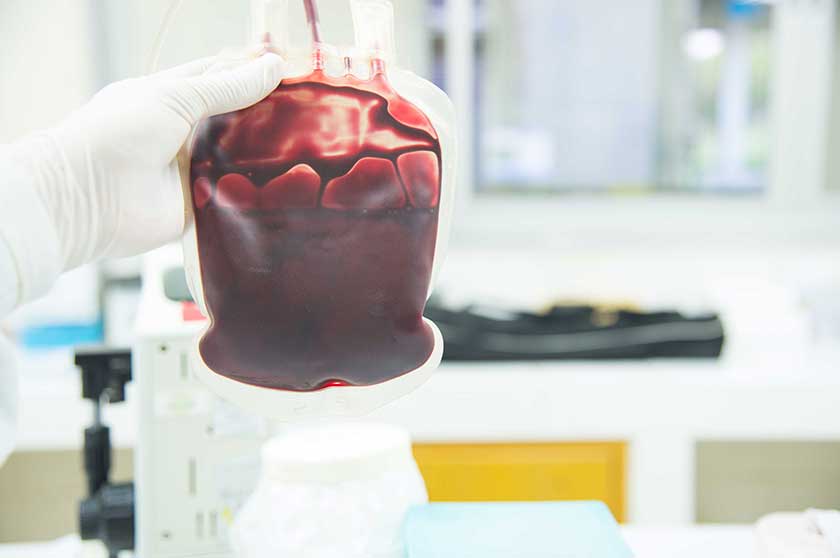Freshness of blood makes no difference for transfusions
An international study recently published in the New England Journal of Medicine reveals the duration of storage of red blood cells prior to transfusion makes no difference to the survival rate of critically ill patients.
23 Feb 2018

23 February 2018
Dr Adrian Regli from St John of God Murdoch Hospital's Intensive Care Unit (ICU), one of 59 participating international sites, says the outcome of the TRANSFUSE trial demonstrates that our current practice of how hospitals store blood for transfusions is safe.
“In Australia, blood for transfusion purposes has a use by date of 42 days after collection,” Dr Regli says.
“In order to reduce wastage the current custom is to release oldest available blood.
“It is often thought, and there has been some research to suggest, that older blood may cause harm especially in the sickest patients.
“But in fact, the outcomes of this trial provide strong evidence that this is not the case.
“We know now that it makes no difference to patients whether they receive the freshest or the oldest blood and our current practise of utilising the oldest red blood cells first is not harming patients.
“Ultimately, this practice uses resources wisely and therefore enables us to help as many patients as we possibly can.”
This randomised controlled trial recruited 4994 participants from across Australia, New Zealand, Ireland, Finland and Saudi Arabia. Eligible patients were aged 18 or over with an expected stay in the ICU for 24 hours or more and who were going to receive one or more units of red blood cells.
Seventeen patients were recruited for this study at St John of God Murdoch Hospital between March and December 2016.

